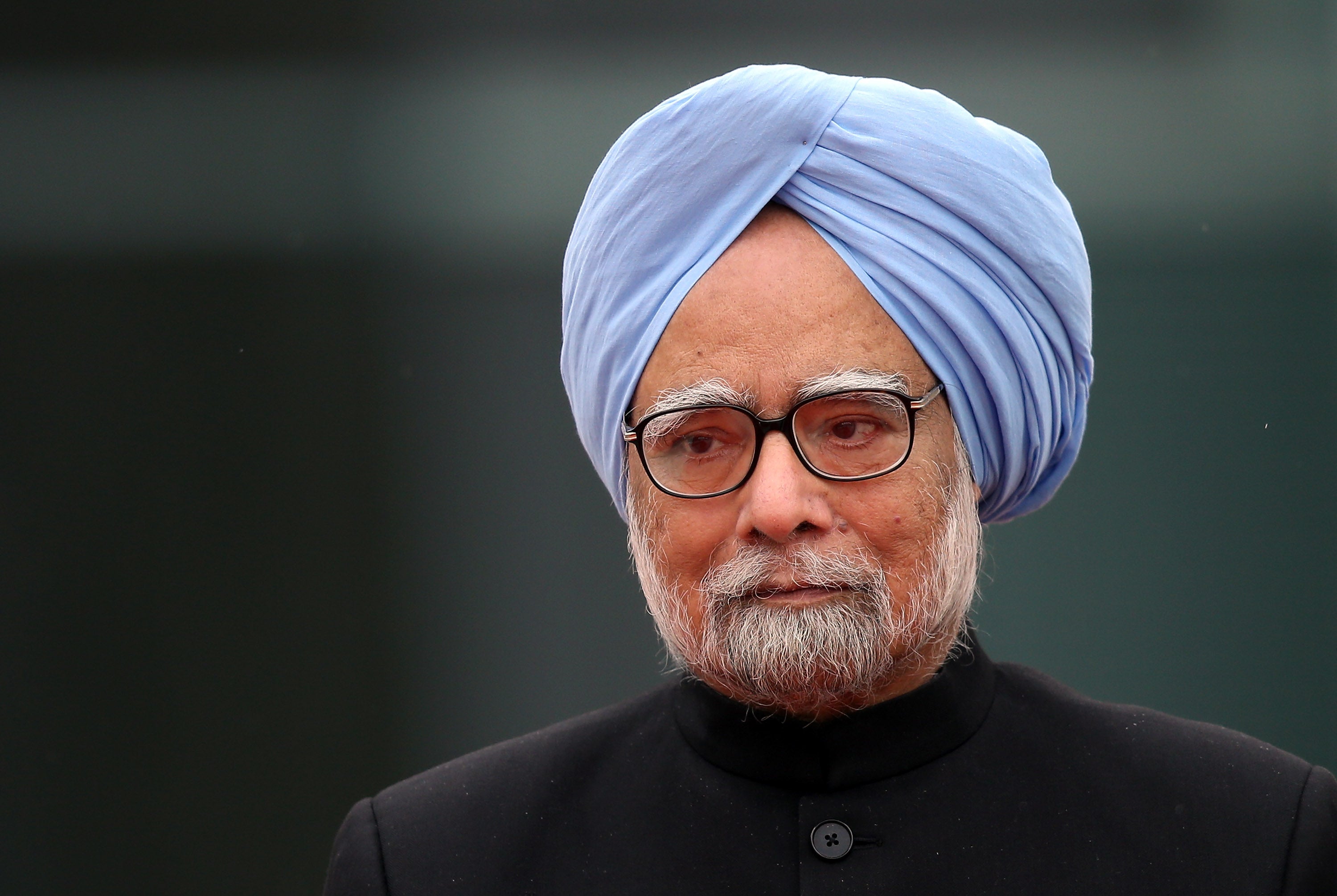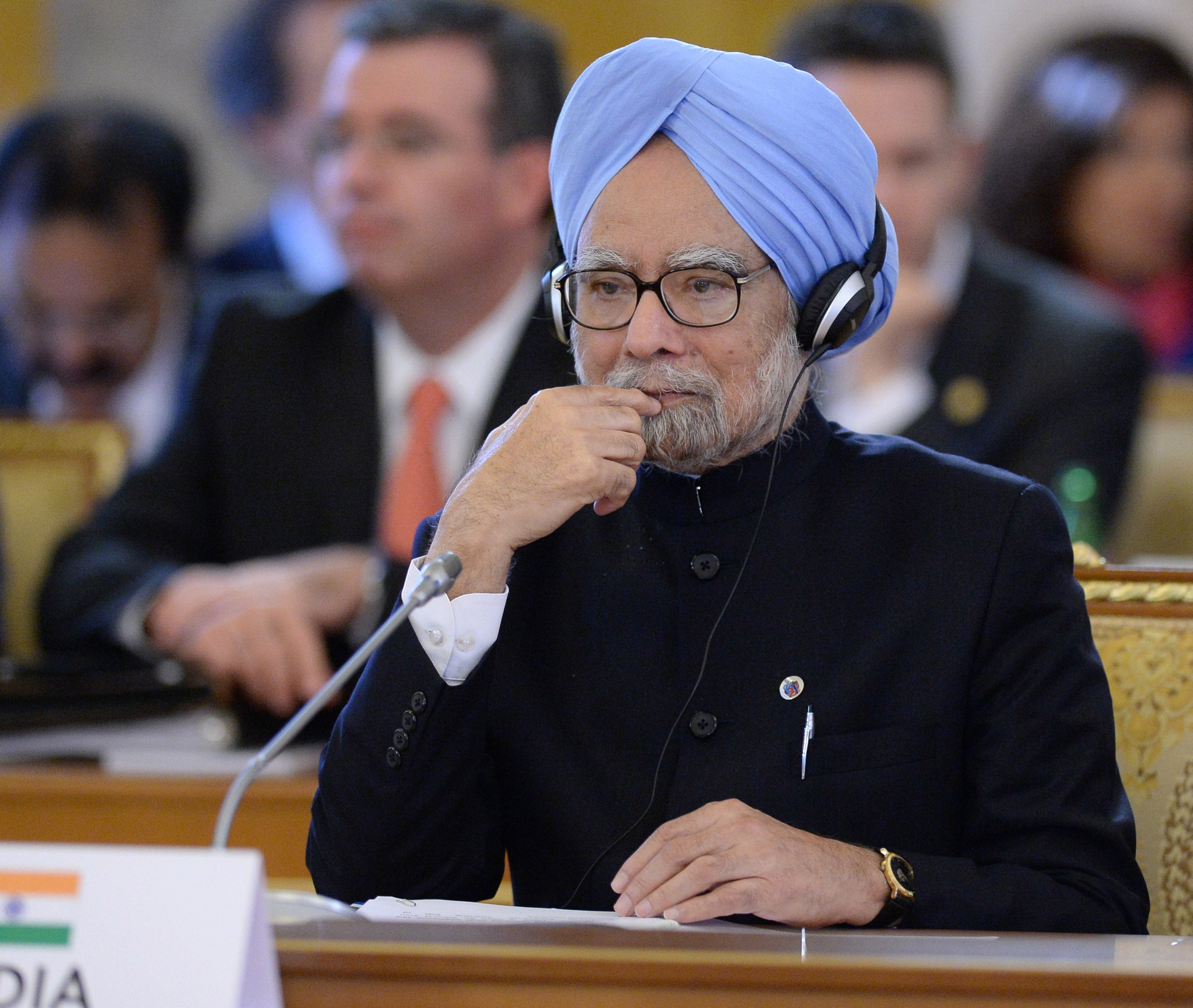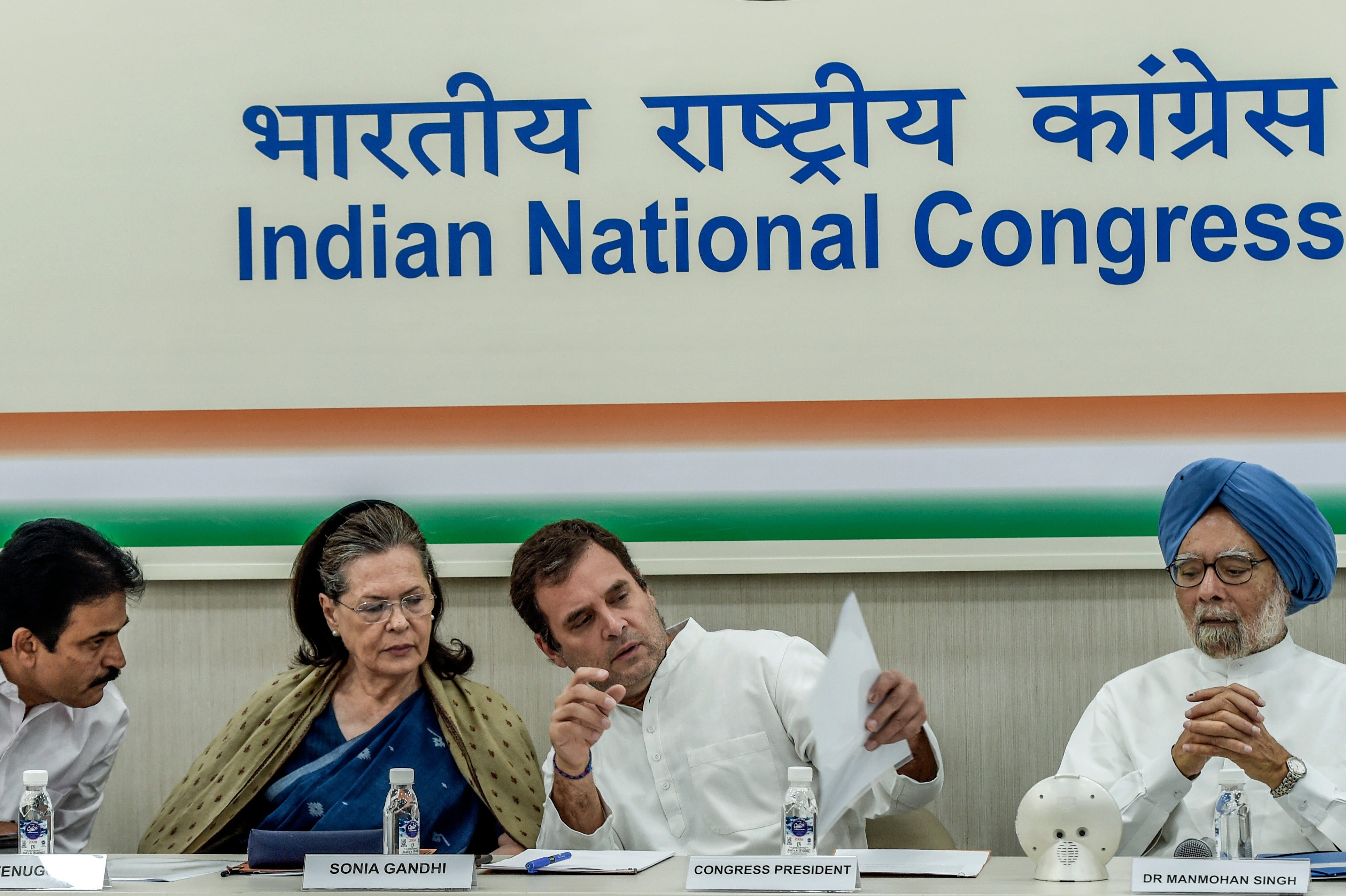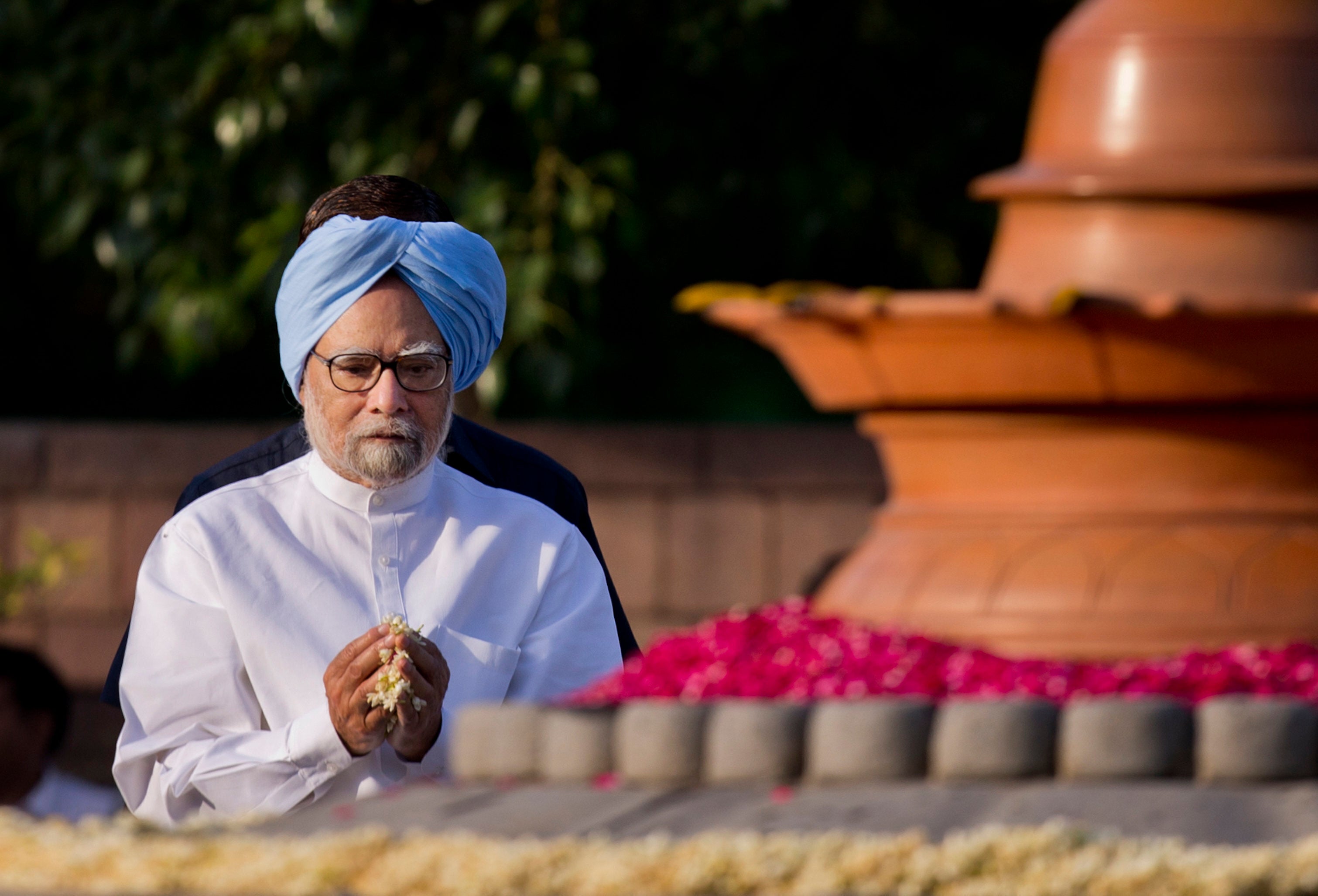At his last press conference as India’s prime minister in 2014, Manmohan Singh predicted that “history will be kinder” to him than contemporary media and political opposition. History will indeed remember Singh as a mild-mannered, articulate and unassertive leader who pulled his country out of an economic crisis and led it through a transformative period.
Singh died at a hospital in the national capital New Delhi on Thursday following a "sudden loss of consciousness at home”. He was 92.
An economist by training, Singh is widely regarded as the architect of India's economic liberalisation programme, which revived a failing economy in the 1990s and lifted hundreds of millions out of poverty.
Giving his maiden budget speech as finance minister in 1991, Singh quoted French writer Victor Hugo: "No power on earth can stop an idea whose time has come."
“The emergence of India as a major economic power in the world happens to be one such idea,” he added.
His gamble to cut taxes, devalue the rupee and, most importantly, privatise public enterprises and open the insular country market to foreign investment etched his name in India’s history by giving new life to the economy.
The deregulation paved the way for India to become one of the fastest-growing economies in the world and taught a generation of Indians to aspire for a materially better life.

Born on 26 September 2022 in a village in the Punjab province of British India, Singh's academic career took him to Cambridge University, where he earned a degree in economics in 1957, and then Oxford University, where he got his doctorate at Nuffield College in 1962.
He served as governor of India’s central bank and a government advisor but had no apparent plan for a political career when he was suddenly tapped to become finance minister in 1991.

Singh was well aware of his political shortcomings. The only time he contested a popular election, in 1999, he lost. He spent his entire parliamentary career in Rajya Sabha, the upper house of the parliament which is indirectly elected.
His ascension to prime minister in 2004 was entirely unexpected. Singh was appointed to the position after Congress party leader Sonia Gandhi, the wife of assassinated prime minister Rajiv Gandhi, turned down the post amid the opposition's disparagement of her Italian heritage. Singh often faced criticism for being indecisive as critics accused Ms Gandhi of pulling his strings.
Singh was India’s first, and so far only, Sikh prime minister. He offered a public apology for the 1984 massacre of some 3,000 Sikhs in the aftermath of former prime minister Indira Gandhi's assassination by her Sikh bodyguards.
Singh oversaw the adoption of the Right to Information Act in 2005 to promote accountability and transparency in government. He was also instrumental in implementing a welfare scheme that guaranteed at least 100 paid workdays for Indian rural citizens.

One of his great achievements was ending India's nuclear isolation by signing a deal with the US that gave it access to American nuclear technology.
But the deal affected his government adversely, with Communist allies pulling support and public criticism growing when it was finalized in 2008.
Singh adopted a pragmatic foreign policy approach, pursuing a peace process with nuclear rival and neighbour Pakistan. His efforts, however, suffered a major setback after Pakistani militants carried out a massive gun and bomb attack in Mumbai in November 2008, killing at least 174 people.
He also tried to settle the border dispute with China, brokering a deal to reopen the Nathu La pass into Tibet after nearly 40 years.
Singh got a second term in 2009 but it was clouded by corruption scandals related to the organisation of the 2010 Commonwealth Games, the sale of 2G spectrum and the auction of coal mines.
This led to the Congress party’s defeat in the 2014 election by the Hindu nationalist Bharatiya Janata Party under Narendra Modi.
Singh kept a low profile after leaving office but remained duty-bound even in old age.
In August 2023, at the age of 91, Singh appeared in the parliament in a wheelchair as the lawmakers deliberated on a contentious bill drafted by the BJP government. He retired from Rajya Sabha that year, winning accolades from lawmakers across the political spectrum for his steadfast dedication to democracy.

Inside the parliament, Singh kept a low pitch but often floored the house with his humour and flair for poetry. Mr Modi called his interventions "insightful" and remembered his predecessor as one of the "most distinguished leaders". "As our prime minister, he made extensive efforts to improve people’s lives," Mr Modi said.
India mourns the loss of one of its most distinguished leaders, Dr. Manmohan Singh Ji. Rising from humble origins, he rose to become a respected economist. He served in various government positions as well, including as Finance Minister, leaving a strong imprint on our economic… pic.twitter.com/clW00Yv6oP
— Narendra Modi (@narendramodi) December 26, 2024
Congress party lawmaker Priyanka Gandhi, who is the daughter of Sonia and Rajiv Gandhi, said Singh was "genuinely egalitarian, wise, strong-willed and courageous until the end".
Her brother Rahul Gandhi, de facto leader of the Congress party, said he lost "a mentor and guide".
Tributes for the former prime minister also came from abroad, with US secretary of state Antony Blinken calling him one of the "greatest champions" of the US-India strategic partnership. "His work laid the foundation for much of what our countries have accomplished together in the past two decades," Mr Blinken wrote.
Former Canadian prime minister Stephen Harper remembered Singh as an "individual of exceptional intelligence, integrity and wisdom".
Hamid Karzai, former president of Afghanistan, called him an "illustrious son of India" and an "unwavering ally and friend to the people of Afghanistan".
Singh increased financial support for Afghanistan and was the first Indian leader to visit the embattled nation in three decades.
Despite growing pressure from the media and the opposition over alleged corruption scandals plaguing his party and government, Singh was the last prime minister to hold press conferences, a practice rendered obsolete by Mr Modi. “I certainly was not a prime minister who was afraid of talking to the press,” he told reporters in 2018.
Singh is survived by his wife Gursharan Kaur and three daughters.
His mortal remains will be taken to the Congress party headquarters on Saturday before the last rites are conducted at Rajghat in the capital.







